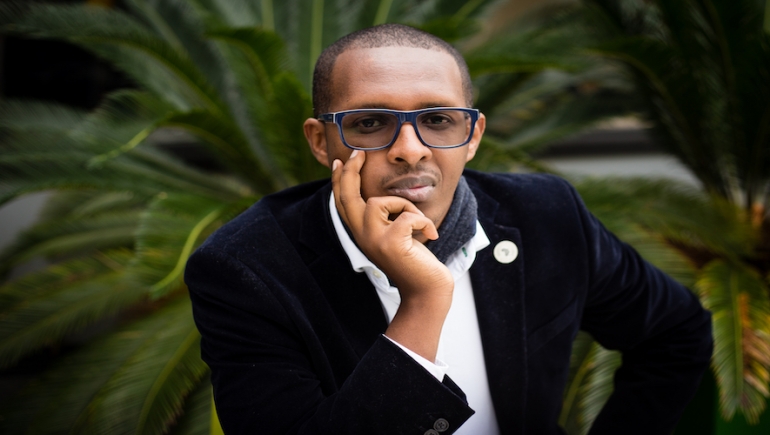Australia will “lose its moral voice globally” if it does not lift its own performance on children’s rights, particularly in the practice of its migration policies, UN Committee on the Rights of the Child member, Professor Benyam Dawit Mezmur says.
Professor Mezmur visited UNSW Sydney to deliver the Australian Human Rights Institute Annual Lecture, supported by Maurice Blackburn Lawyers.
His lecture contrasted the great optimism expressed when Australia ratified the Convention of the Rights of the Child in 1990, with how it treats children now, particularly those who come under its care as asylum seekers.
In 1990, the Minister for Foreign Affairs and Trade, Senator Gareth Evans, and the Attorney General, Michael Duffy, said the ratification represented an “important new development in the protection of the rights of children and indicates the concern of the Australian Government to assist to the greatest extent possible in the improvement of human rights throughout the world”.
Australia was heavily involved in negotiations for provisions of the Convention that have direct implications for children in migration, so is in a better position than most to understand its obligations, Professor Mezmur said in an interview before the lecture.

Benyam Dawit Mezmur. Photo: Diane Macdonald
But 27 years later, Australia’s migration policies and how they affect children, particularly unaccompanied children, “leave much to be desired”.
“The moment a government starts spending a lot of time talking about the letter of the Convention at the cost of the spirit of the Convention is usually an indication of stagnation or progression on implementation,” he said.
“The moment you try to pigeonhole the Convention in a time capsule, you will be limiting the opportunity to create an Australia that is fit for children.”
Professor Mezmur says Australia must ask itself whether it wishes to use its new position on the UN Human Rights Council to create a world more fit for children, and how it will do that.
“At the end of the day, if Australia continues the current trajectory, particularly on the issue of migration without a proper reflection of its own obligation under the human rights framework, over time, sooner rather than later, it will lose its moral voice globally,” he said.
“As a member of the Human Rights Council, it has been indicated by your Honourable Minister of Foreign Affairs that Australia would like to push the boundaries on Indigenous people’s rights, on women empowerment, on LGBTI-related issues.
“I think Australia might be talking in relation to those issues, but I think as long as it doesn’t have the moral high ground, there will only be a few states that will be listening to Australia.
“Because at the end of the day, if your human rights record is less than stellar, if it is tainted, you calling other countries on their human rights records would be what some people call ‘fish calling each other wet’. It’s not going to work.”
